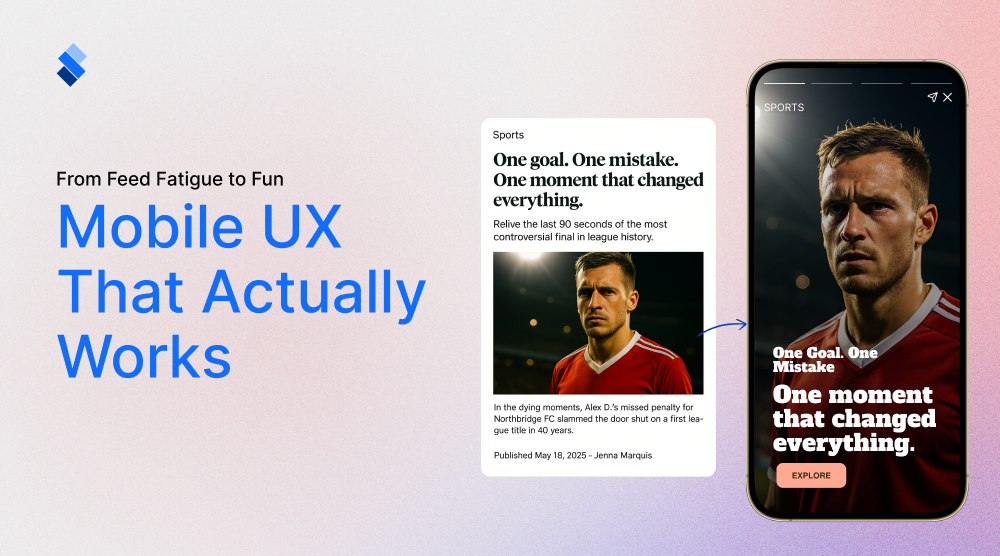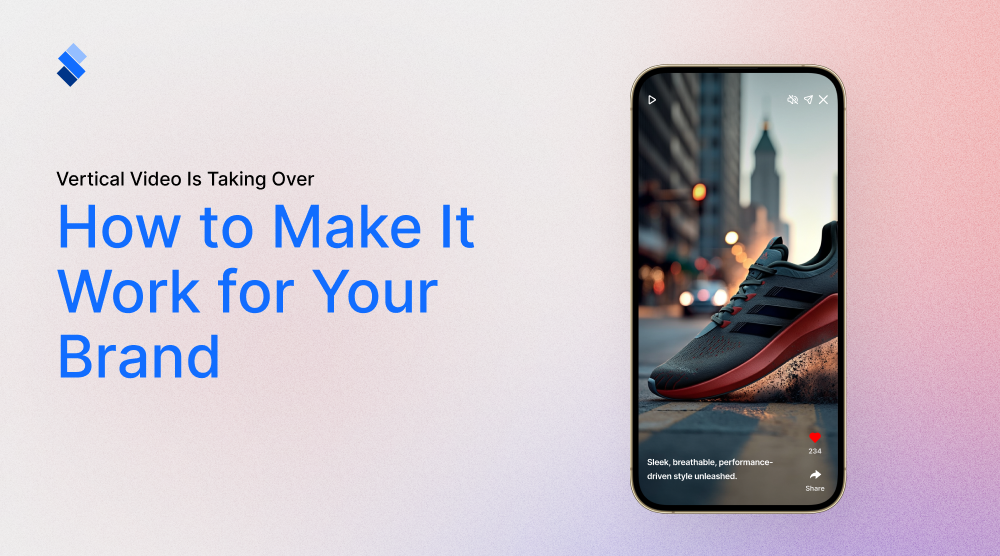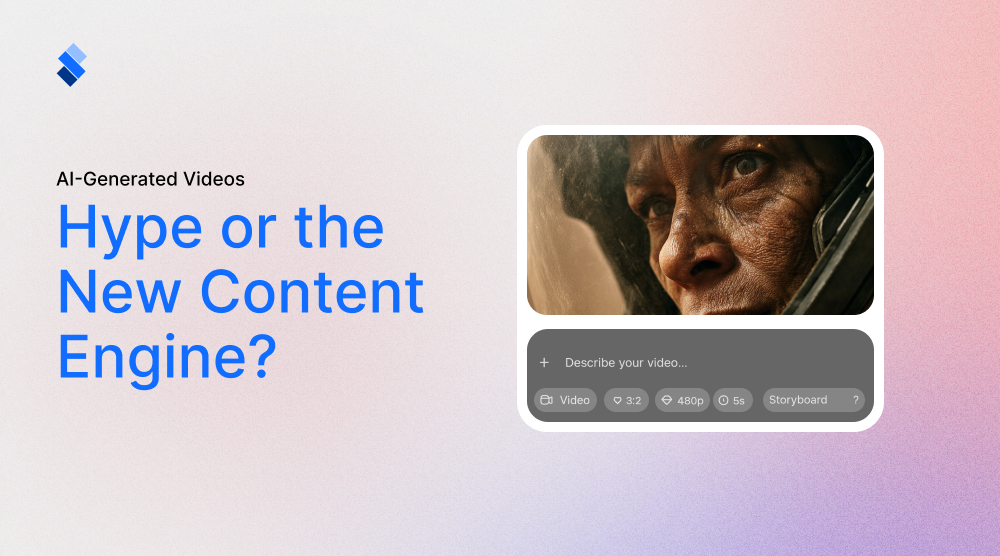6 Signs Your Messaging Isn't Optimized for Gen Z
It can quite easily be the case that your messaging isn't optimized for Gen Z and that you are simply not aware of it.

As time goes on, it is becoming more and more important for brands to include Gen Z in their marketing. While some brands could make do by simply orienting their content marketing to millennials, this option is becoming less and less viable. If brands wish to yield revenue in the upcoming years it will be paramount that they understand the Gen Z audience and how to approach them. In this article, we will delve a bit deeper into this, surprisingly complex subject. And, we will help you determine whether or not your messaging isn't optimized for Gen Z.
Who is Gen Z
To properly cover this subject, let's first outline who Gen Z is. Gen Z (also known as zoomers) is a term often used in marketing research for people born between the mid-to-late 1990s to 2010s. So, what do the people born in this time have in common so that it is useful to group them together? Well, the one thing that everyone in Gen Z has in common is that they grew up with the internet. Older generations adopted the internet at some point in their youth, or even adult lives. But Gen Z had access to the internet ever since they were aware of themselves. This, unsurprisingly, has led to some demographic differences that show their mark in how Gen Z views marketing and branding.
What Gen Z expects from marketing
If there is one thing that Gen Z is tired of it's standard marketing. Because they've used the internet for most of their lives, they are quite familiar with how marketing works, and how obnoxious it can be. While some old-school marketing strategies can be effective, they are far less reliable with Gen Z than they would be with millennials or Gen X.
What Gen Z do expect from marketing is that companies predict and respond to their needs. In practice, this mostly boils down to personalization. By utilizing it, brands can determine what their customers are like, and what their needs are. If they know this, they can look to promote the right marketing content at the right time. For Gen Z, this is the only type of marketing that is remotely acceptable and which won't be outright ignored.
What Gen Z expects from brands
Gen Z doesn't simply want to buy products and hire services. Instead, they want to feel that by spending money they also support certain social and environmental causes. So, if a brand simply markets itself as top-quality or cost-effective, it won't really hit the mark when it comes to Gen Z. Instead, brands need to have corporate values that are in line with ongoing social and environmental issues. The more clearly brands support certain causes, the better. Gen Z always tends to gravitate towards brands that have a clear voice when it comes to social and environmental issues, as supporting those brands also means supporting their cause.
Multichannel approach
Lastly, it is important to realize that because Gen Z is so used to spending time online it is difficult for them to pay attention to any single thing. Be it a social media platform, a video streaming service, or a website... What they'll do is they will simultaneously watch different platforms or even use different devices. So, in order to reach them effectively, it is paramount for brands to have a multichannel approach to marketing. You need to make your content easily accessible from mobile devices and PC alike. If you don't, it is quite likely that the younger audience will simply forget about your content, even if it is well-made and properly targeted.

Clear signs your messaging isn't optimized for Gen Z
What we've covered so far should give you a basic idea of what Gen Z is like. But, let's now outline what tackling Gen Z, from the point of marketing, is like in practice. As you can assume, dealing with the younger audience will require a fair bit of messaging. Only once you establish a connection with them can you rest easy that you will gain quality online traffic and decent conversion rates. So, the following are the six clear signs your messaging isn't optimized for Gen Z.
Formal messaging
When inexperienced people approach business messaging they often think that it needs to be formal. After all, you are trying to represent your brand as a competent company that takes its customers seriously. So, you should look to sound formal. Well, not quite. Especially not if you are trying to reach a Gen Z audience.
If you are too formal in your messaging it is quite likely that the Gen Z audience will simply see you as a faceless company. Keep in mind that regardless of how good your services and/or products are, Gen Z doesn't want to do business with faceless companies.
Not using social media
The go-to way for research, communication, and entertainment for Gen Z is social media. Therefore, if you aren't using it for your messaging, you aren't reaching them. Yes, to a certain degree, you can rely on emails as a way to converse with your audience. But, even a top email strategy can't make up for the lack of social media presence. It is paramount that you grow your brand on multiple social media platforms, and that you actively maintain them.
Relying solely on written content
A good rule of thumb is that the less written content you use in your messaging, the better. Videos, images, animated content, web stories... Even voice messages can be a viable alternative to written content. Ideally, you will test different options and see which one has the best rapport with your customers. But, avoid sending long-winded paragraphs to your Gen Z audience. It is highly likely that they simply won't read it.
Not using emojis
If and when you use written content, you need to use emojis. For older crowds, emojis can seem tacky and unnecessary in business discourse. But, it is important to remember that Gen Z heavily relies on emojis to convey emotional content. Putting a certain emoji along with your written message can give it a completely different meaning and feel. And without it, you are leaving it up to the audience to determine what you actually meant.

Lack of interactive content marketing
Your content doesn't always have to be interactive in order to reach the Gen Z audience. In fact, if it were always interactive, it would only be counter-productive as they would start to ignore the interactive elements of your content. Instead, it is important that you include interactive content every once in a while as a way to refresh your messaging. Gen Z like to respond to interactive elements. Especially if doing so will bring them some benefits. If you don't rely on interactive elements, you aren't making the most out of your content.
Lack of understanding of social issues
Lastly, it is important to understand that Gen Z places a ton of value on social issues. The ongoing issues with gender and race. The environmental issues and animal cruelty. These are all important points that you should look to address in your messaging and overall content marketing.
Now, does this mean that in every interaction you have with your clients, you should outline your stance on these subjects? Of course not. What important is that you are aware of them so that you don't seem tone-deaf. The way in which you phrase your response can show a lack of care or a lack of understanding of ongoing issues. And, unfortunately, Gen Z is anything but willing to let such mistakes slide.

Conclusion
By now you ought to have a decent idea of who Gen Z are and how they experience the world of online branding. The details we've outlined should give you a hint at whether or not your messaging isn't optimized for Gen Z. And with a bit more research and practice you should be able to address the younger audience with relative ease. What's important to remember is that every brand needs to understand how to address the current target audience. In this regard, learning how to talk to Gen Z is simply another obstacle to overcome. A key rule of business is that you can either adapt or wither away. So, do your best in learning how to adapt, as that is a skill you'll need for years to come.







